Team Development Report: Stages and their Importance
VerifiedAdded on 2022/11/30
|5
|562
|88
Report
AI Summary
This report provides an analysis of the stages of team development, focusing on how these stages impact team effectiveness. The report examines the five stages: forming, storming, norming, performing, and adjourning. The forming stage involves team members getting acquainted. The storming stage involves conflict resolution. The norming stage involves establishing roles and consensus. The performing stage focuses on achieving goals, and the adjourning stage involves wrapping up tasks. The report emphasizes the importance of each stage for improving team performance and achieving the mission of the company. The report also references key academic articles to support the analysis of the different stages of team development.
1 out of 5
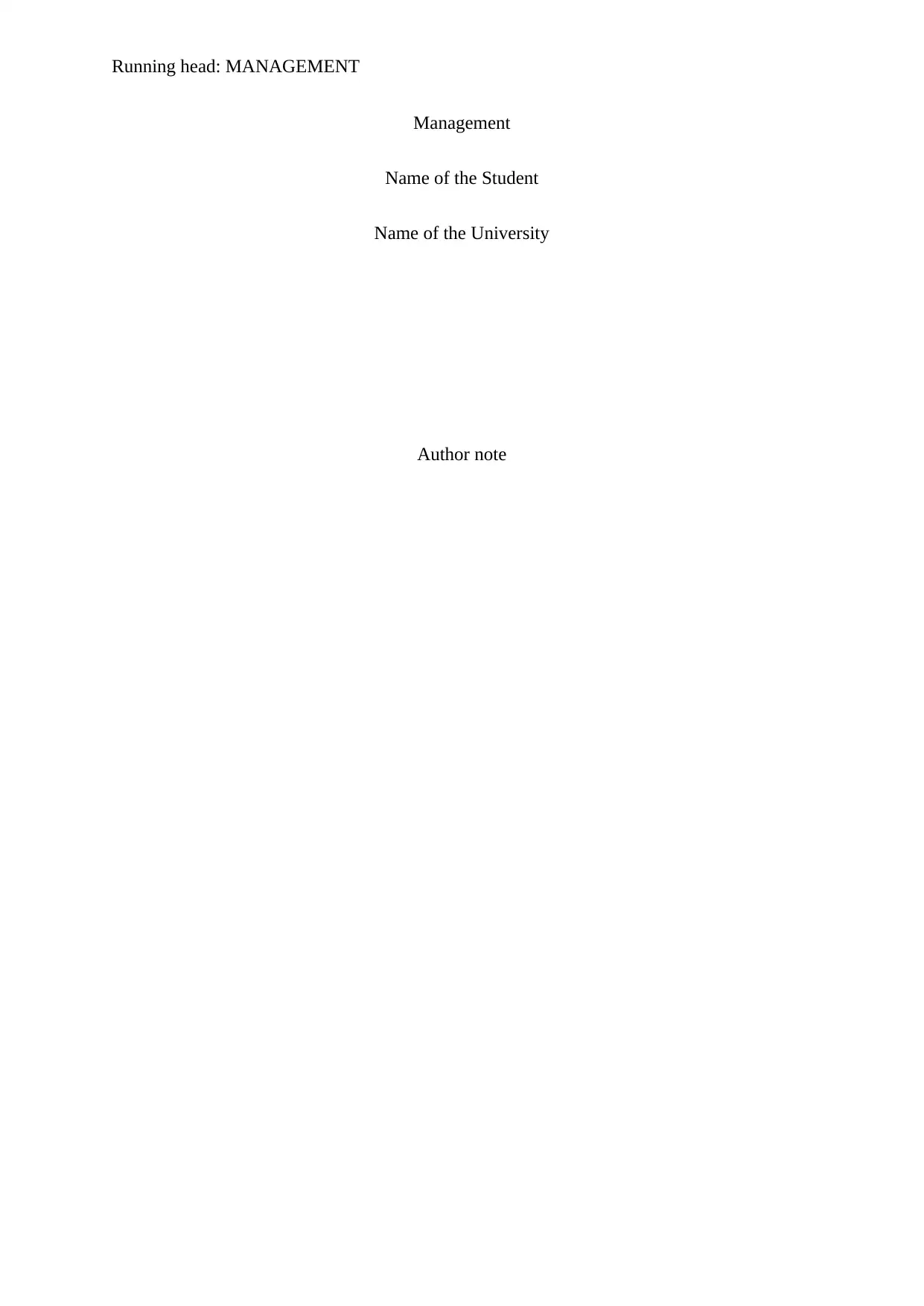
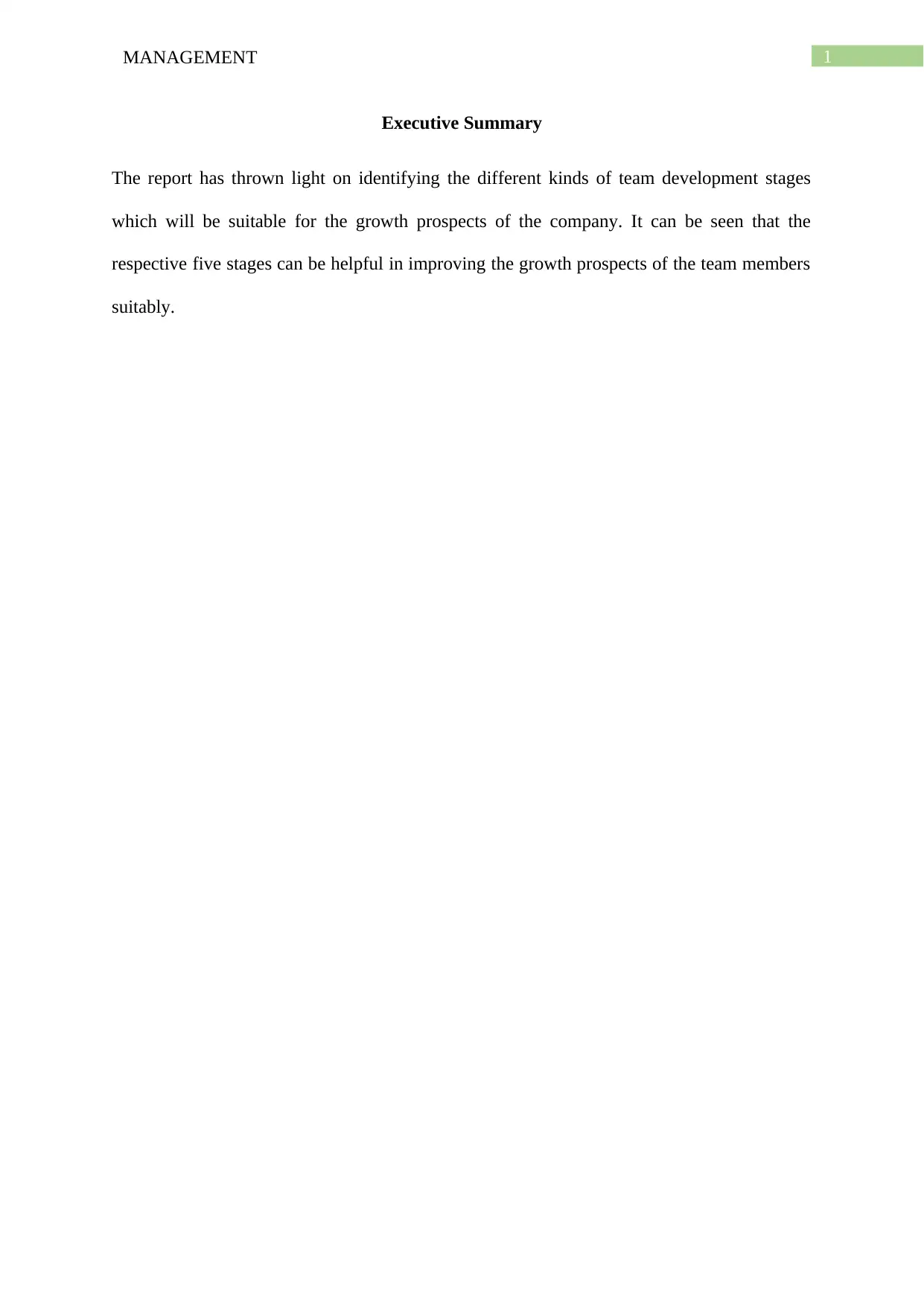
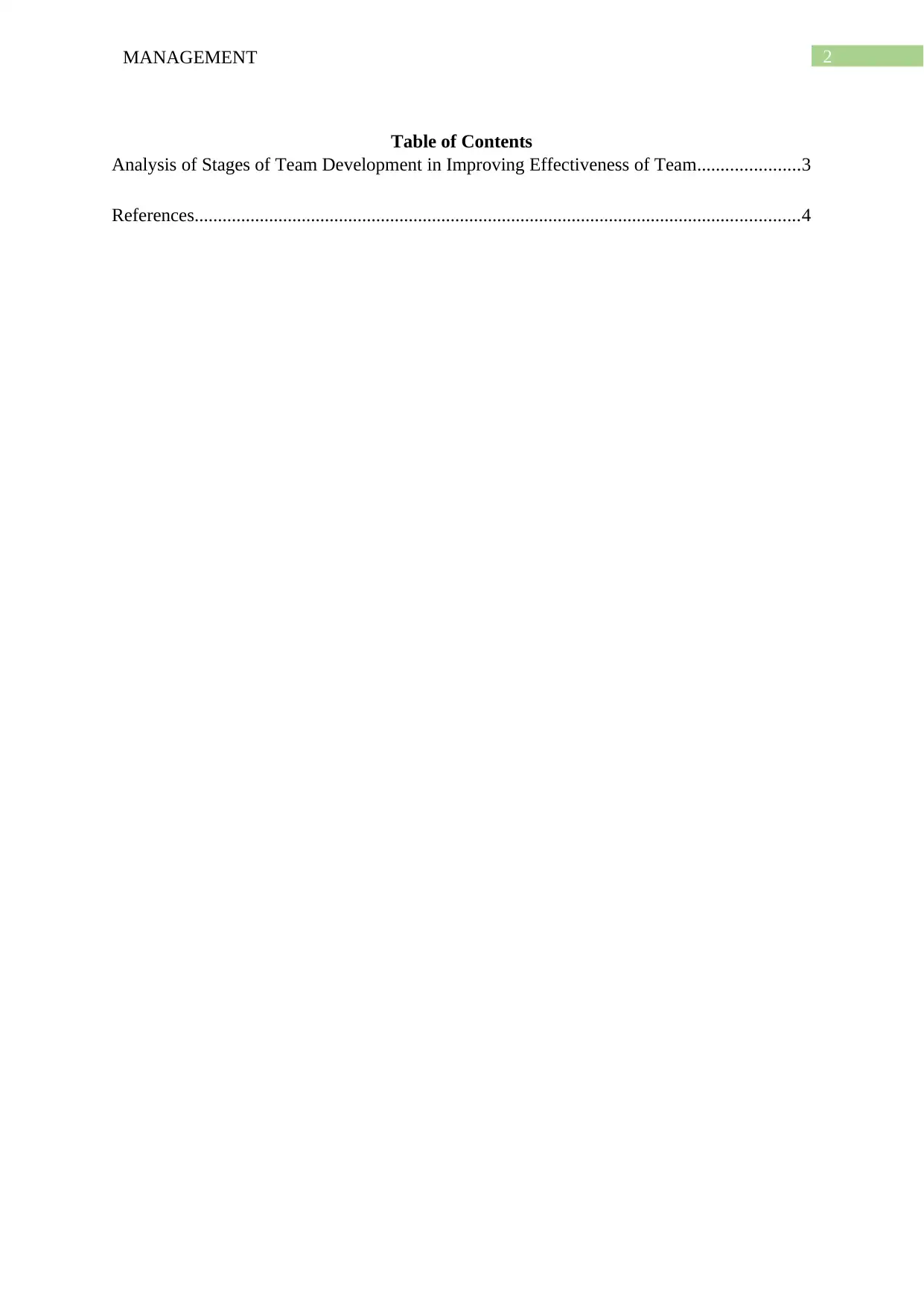

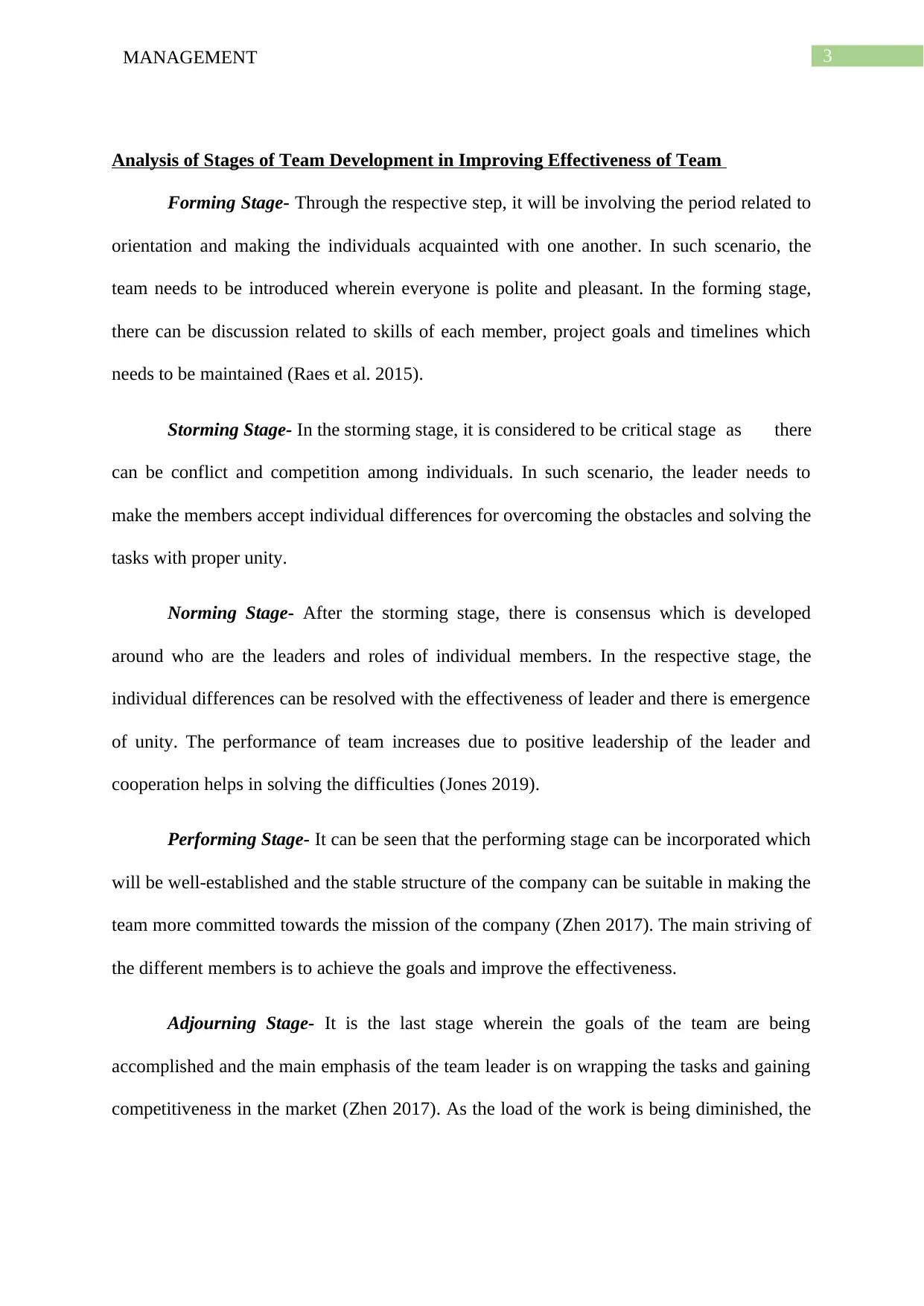
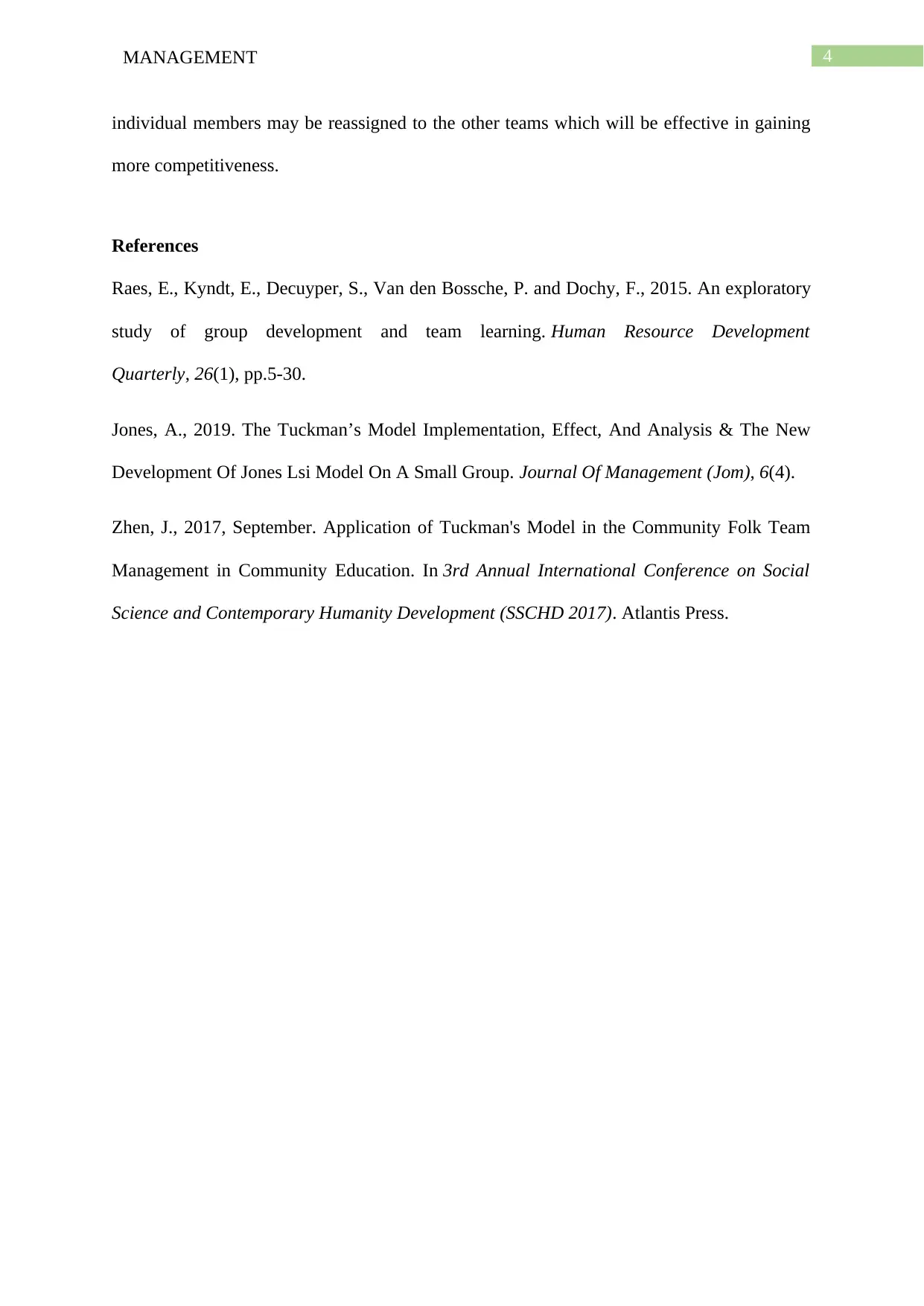





![[object Object]](/_next/static/media/star-bottom.7253800d.svg)